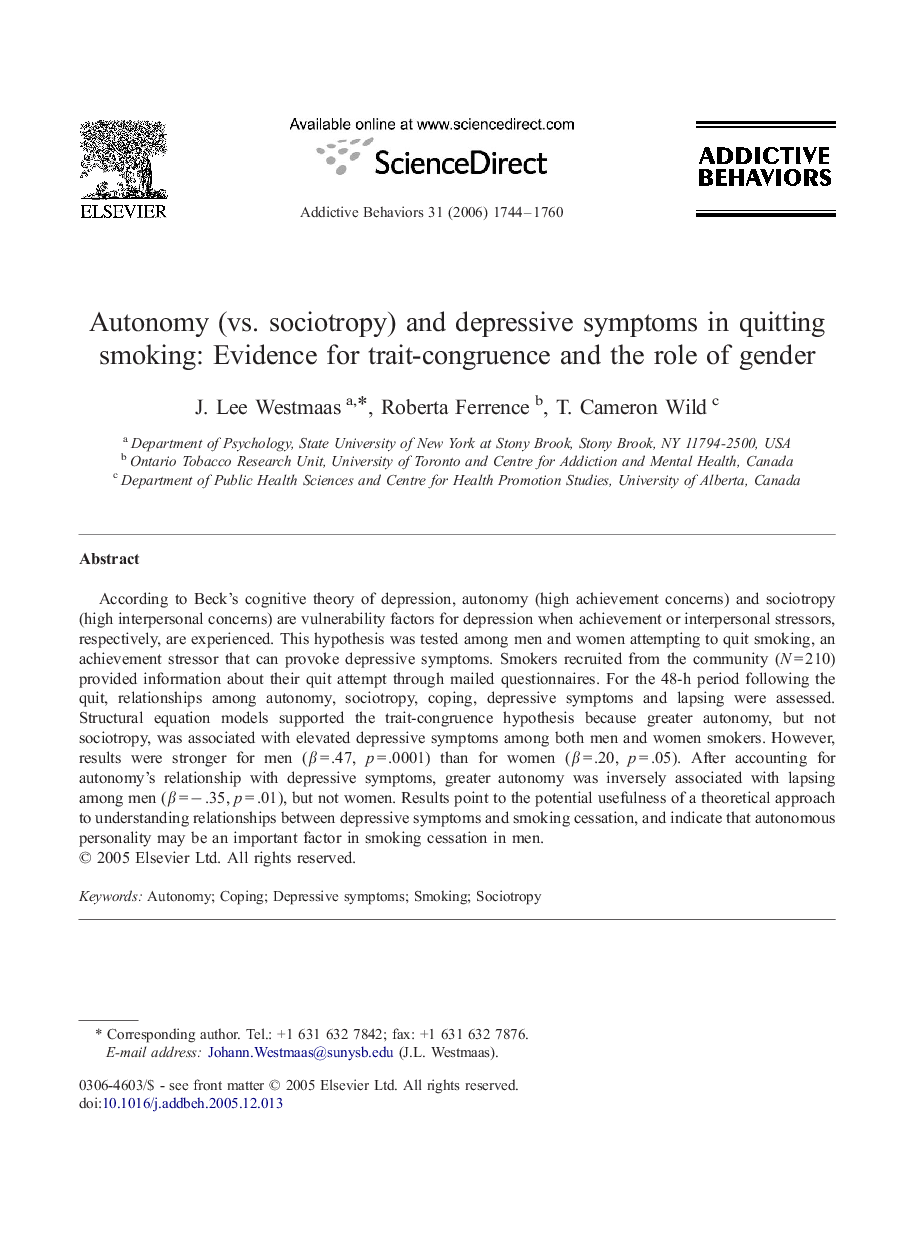| Article ID | Journal | Published Year | Pages | File Type |
|---|---|---|---|---|
| 900658 | Addictive Behaviors | 2006 | 17 Pages |
According to Beck's cognitive theory of depression, autonomy (high achievement concerns) and sociotropy (high interpersonal concerns) are vulnerability factors for depression when achievement or interpersonal stressors, respectively, are experienced. This hypothesis was tested among men and women attempting to quit smoking, an achievement stressor that can provoke depressive symptoms. Smokers recruited from the community (N = 210) provided information about their quit attempt through mailed questionnaires. For the 48-h period following the quit, relationships among autonomy, sociotropy, coping, depressive symptoms and lapsing were assessed. Structural equation models supported the trait-congruence hypothesis because greater autonomy, but not sociotropy, was associated with elevated depressive symptoms among both men and women smokers. However, results were stronger for men (β = .47, p = .0001) than for women (β = .20, p = .05). After accounting for autonomy's relationship with depressive symptoms, greater autonomy was inversely associated with lapsing among men (β = − .35, p = .01), but not women. Results point to the potential usefulness of a theoretical approach to understanding relationships between depressive symptoms and smoking cessation, and indicate that autonomous personality may be an important factor in smoking cessation in men.
